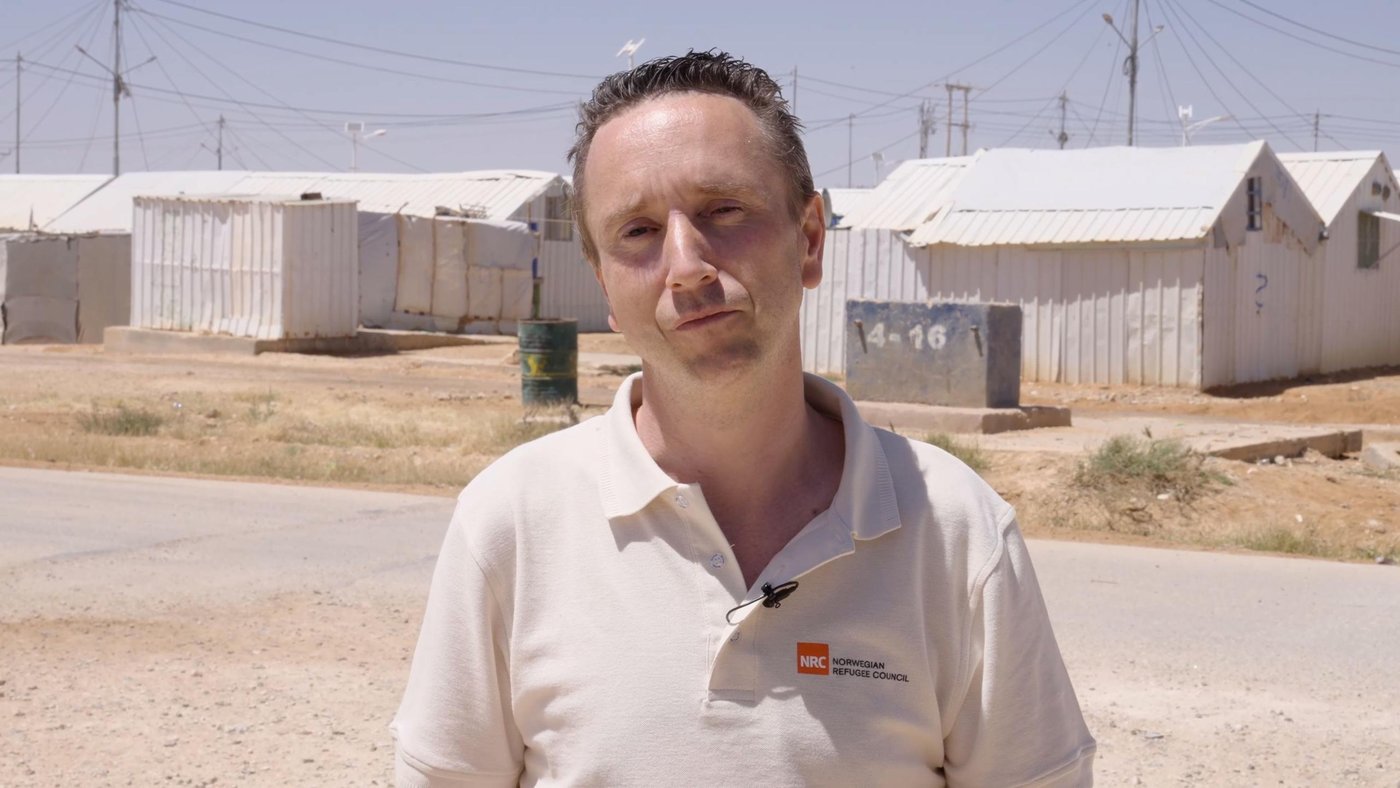

Torstein was recently on a tour of several of NRC's programme countries in the Middle East. He met Syrians and Iraqis who have been forced to flee, Palestinians who are stuck in camps from the 1940s, and Lebanese who, in desperation, embark on life-threatening journeys across the Mediterranean. Here are some of his experiences from the trip.
A profession no matter where life sends them
Since 2012, Jordan has received hundreds of thousands of Syrians who have fled war and conflict in their homeland. Although most Syrian refugees have been granted legal residence in the country, thousands have not been accepted.
Those left in limbo do not have the opportunity to get regular work, nor do they have access to important public services such as health and education. This leaves them dependent on authorities and aid organizations for protection and basic needs.
The Azraq refugee camp houses 44,000 people who have fled the brutal war in their home country of Syria. Torstein met refugees at the youth centre – learning about their lives over a game of chess.
"Through our education programmes, these young people receive vocational education in areas like construction, sewing and IT. This is crucial because it means they will have a profession no matter where life sends them,” Torstein says.
“We also assist with psychosocial follow-up for those struggling with trauma after experiences from the war in Syria.”
 Torstein with Syrian refugees at the youth centre. The chessboard was made during a workshop in the Zaatari refugee camp. Photo: Sherbel Dissi / NRC
Torstein with Syrian refugees at the youth centre. The chessboard was made during a workshop in the Zaatari refugee camp. Photo: Sherbel Dissi / NRC
"He was always so happy. For the most part, the kids here are not.”
In Lebanon, Torstein visited, a primary school in the Shatila refugee camp. Here, he met the assistant principal who discussed an upcoming renovation project of the outdoor areas so that the children have a safer place to play.
"It is dangerous where the children are playing now, by a big road. A boy was killed. He was the only one his parents had,” she said. After some thought, she added:
“He was always so happy. For the most part, the kids here are not.”
The new schoolyard will also be used as a gathering place in the evening for local residents. Modest upgrades like a screen for the school's small library, .to be used both by educators and parent groups, will make a big impact on everyday life.
 Guided tour of the primary school in Shatila. Photo: Charbel Kosseifi / NRC
Guided tour of the primary school in Shatila. Photo: Charbel Kosseifi / NRC
"This is a small project, but it will make a difference for 1,500 children at the school and the community. The cost is not great, but it is Norway that provides the funds, and we can be proud of that,” says Torstein.
Challenges for teenage girls in refugee camps
In northern Iraq, Torstein attended discussion groups.
One group was made up of mothers worried about their teenage daughters growing up in refugee camps and facing harassment like unwanted physical contact. "There was a strong desire among the parents to have these groups. The groups discuss topics that are not so easy to address otherwise,” Torstein says.

